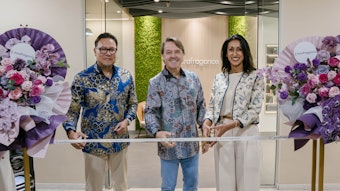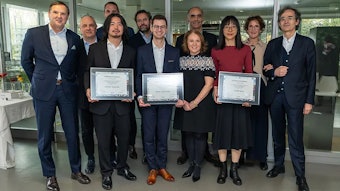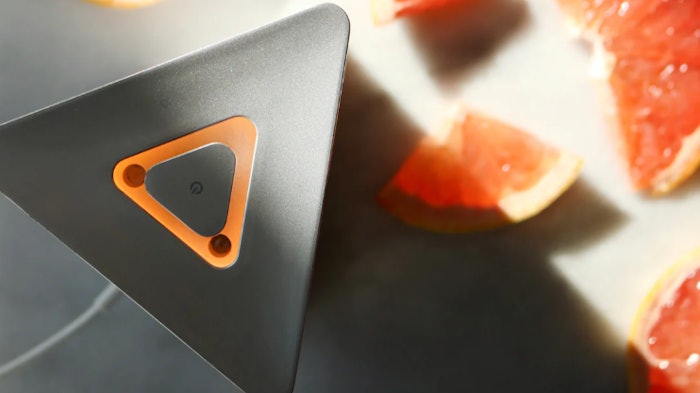
The role of scent in the wellness industry has evolved over the last five years since the COVID-19 pandemic. In fact, The Global Wellness Summit even listed fragrance’s role in wellness as a key trend for 2019. Researchers and consumers alike are more aware of the links between the olfactory system and overall wellness. The result: a new category of fragrance products aimed at enhancing mood through neuroscience-backed research.
This article is only available to registered users.
Log In to View the Full Article
The role of scent in the wellness industry has evolved over the last five years since the COVID-19 pandemic. In fact, The Global Wellness Summit even listed fragrance’s role in wellness as a key trend for 2019. Researchers and consumers alike are more aware of the links between the olfactory system and overall wellness. The result: a new category of fragrance products aimed at enhancing mood through neuroscience-backed research.
Airzai first launched in 2019 with “Aroma,” a premium smart home diffuser backed by neuroscience for mood enhancement. Since its launch, the company has become one of the largest seed-funded startups in Canada in its category. Airzai currently has four scents available for use with its diffuser: Eternal Energy, Mindful Meditation, Serene Sleep, and Peacefully Productive.
Perfumer & Flavorist+ spoke with Muneeb Mushtaq, CEO and co-founder of Airzai, about his journey to becoming a successful startup and the science behind the crafted scents.
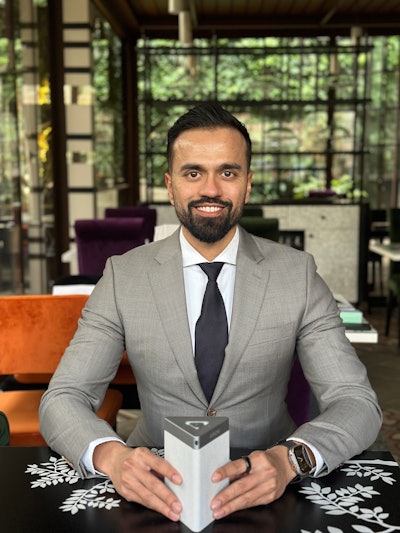 Muneeb Mushtaq, co-founder and CEOCourtesy of Airzai
Muneeb Mushtaq, co-founder and CEOCourtesy of Airzai
What was the inspiration behind Airzai?
Muneeb Mushtaq [MM]: We came up with the idea of Airzai because of our past experience in technology and our passion for fragrances. So we looked at how fast the smart home industry is growing, and we realized that there's a big space in the scent industry where companies are not really looking at how this age-old industry can be disrupted. And that made us curious and started playing around with different ways of delivering this in a way that resonates with the modern age.
We came across the wellness aspect when we realized that the neuroscience behind our olfactory system plays a vital role in wellness, and so we got a team together of clinical psychologists, neuroscientists, even hypnotherapists and had a discussion around how effective scents could be on our mental wellness. It became a fusion of fragrances along with smart technology and pairing that up with wellness and boom, that's where Airzai came into being.
Tell me a bit about your journey to becoming Canada's largest seed-funded startup in this category.
[MM]: So it didn't come by chance. So, you know, our co-founders have had a history, including myself, of building successful startups, and our network was really keen on seeing what the next thing we're going to create is, what we're going to build. Hence, once we started Airzai, there was already an existing interest in getting into it, even though we were bootstrapping for the longest time. It started off as a passion project, so for the first few years we were just building it, brainstorming, and playing around with different versions of what Airzai would look like. So we had no idea how far we could take it or how big we could build it, and so being the largest seed-funded startup in this category at that time was something that was truly humbling for us to see the response and excitement and appetite for a product like Airzai.
Did you work with neuroscience experts to create this product? What was the collaboration like?
[MM]: Absolutely. We still continue to work with our neuroscientists, clinical psychologists, and even hypnotherapists. For example, Marissa Peer is an investor in the company and she's a renowned hypnotherapist who's known for her work and best-selling books. And so when we collaborate, we work with these award-winning leaders in their industry. It's so refreshing to create products that can truly bring value to our users, our customers, our end users. And so we're truly excited to continue to build on that and not only just focus on neuroscience, but also bring scents that smell amazing, smell luxurious, and smell exotic. So there are different collections that we're going to be looking forward to introducing in the near future as well.
Can you give a brief overview of the neuroscience behind mood-boosting fragrances?
[MM]: So there are multiple factors that we and our fragrance partners deploy in order to ensure that we're using our scents effectively on three different aspects. We call them biosensors to study the impact of fragrances on our target audience and their emotions.
The first one is the expressive component, which we call the behavioral component, where we are tracking facial expressions and also eye tracking. So we understand that once we create a scent, how's that impacting [the user]? And there's different biomarkers that help us understand if it's relaxing, it's energizing, it's meditational, what brainwave it is impacting.
Then we go on to the visceral component, which is physiological measures. For example, we check the heart rate. Of course, we do EEG (electroencephalogram reading), where we place a headband on a subject's head and understand how the brainwaves are changing. In fact, we were one of the first companies in home scenting and fragrance that have actually filed a patent in connecting brainwaves with the scent that the user would be inhaling. And then we have the galvanic skin response, where we can actually see how it's impacting the change in temperature and the response of the human body and a physiological level.
And the third thing we do is a neurocognitive test, which is a questionnaire. So we asked very specific questions that are made by neuroscientists and psychologists to understand the response and the results of each of the scents that we expose to our test audience, and then we understand how it's impacting them. So we go very deep into understanding how well the scents are being perceived, and how they will surely be bringing that emotional aspect that our users and our customers would desire.
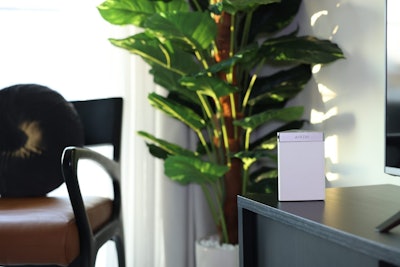 Mushtaq shared, "We came across the wellness aspect when we realized that the neuroscience behind our olfactory system plays a vital role in wellness."
Mushtaq shared, "We came across the wellness aspect when we realized that the neuroscience behind our olfactory system plays a vital role in wellness."
How does AI factor into this product?
[MM]: So we haven't shared much publicly about how AI would be working with our device as we're still building it. Building the AI features actually requires a lot of capital, and we have been very proactive in not only deploying the capital, but also securing IP and patents. Primarily the idea is to offer a personalized wellness experience through Airzai. And so what that would mean is that not only would we be able to understand your space, and how to make sure that it's properly scented at all times, but we would have a very good idea and prediction model to understand what your mood will be. And based on that recommend and diffuse the scent that would really regulate your emotional state.
Again, we're looking forward to sharing a lot more in the near future as we continue to develop the features and bring them to our customers.
In your opinion, how is scent technology transforming the wellness space?
[MM]: I feel it's in the very early stages, and I think there's a lot of education that needs to happen. People still don't understand how sensitive our sense of smell is, or how our olfactory system works. Out of the five senses, the olfactory system is the most sensitive sense we can have. We want to be at the forefront of being the leading brand that really truly dives into the science behind scents and the science behind olfactory systems and really integrates that into the wellness space. Are there other brands that are tapping into this? Of course, it is an up-and-coming trend, but we have truly disrupted that and have actually also secured IP behind it as well.
How do you think automation and AI will factor into the fragrance industry in the years to come?
[MM]: Big, big, big time. I think with every industry getting disrupted by AI and automation, and I think the fragrance industry is ripe for disruption. So we feel that Airzai is really well-placed in this specific space, which is quite empty right now and we’re very excited to be at the forefront of all of this.




